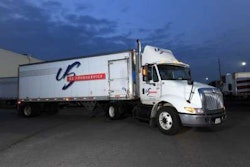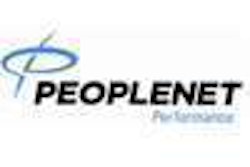Highway bill timing unclear as Oberstar, LaHood disagree
Key transportation leaders in the U.S. House of Representatives in June proposed a highway reauthorization bill that would mandate electronic onboard recorders (EOBRs) on all commercial motor vehicles used by carriers subject to the hours-of-service regulations. The legislation also would keep interstate highways toll-free except under narrowly-defined circumstances and would establish a special office within the Federal Highway Administration to oversee tolls and public-private partnerships.
The Democratic and Republican leaders of the House Transportation & Infrastructure Committee and its highway and transit subcommittee on June 18 released a 90-page preview summary of the Surface Transportation Authorization Act of 2009. The committee released a draft of the 775-page bill as CCJ went to press last month. The highway and transit subcommittee was scheduled to begin working on changes to the bill on June 24.
But while committee Chairman James Oberstar (D-Minn.) apparently has achieved consensus with key Republicans on his own committee, he doesn’t see eye-to-eye with President Obama’s Department of Transportation and Secretary Ray LaHood. Oberstar wants to push forward with a major overhaul of highway programs under the usual long-term authorization bill. But LaHood, citing analysis that the highway trust fund could run out of money by August, has proposed an immediate 18-month reauthorization that will replenish the trust fund.
“If this step is not taken, the trust fund will run out of money as soon as late August, and states will be in danger of losing the vital transportation funding they need and expect,” LaHood said on June 17. “As part of this, I am proposing that we enact critical reforms to help us make better investment decisions with cost-benefit analysis, focus on more investments in metropolitan areas and promote the concept of livability to more closely link home and work.” LaHood also noted that the Obama administration opposes a gas tax because of the potential impact on consumers and businesses in a recession.
Anticipating Oberstar’s news conference the following day, LaHood acknowledged concerns about a short-term authorization. “However, with the reality of our fiscal environment and the critical demand to address our infrastructure investments in a smarter, more focused approach, we should not rush legislation.”
“Delay is unacceptable,” Oberstar said June 18. “Delay casts uncertainty on the program. If we delay the new authorization, states will hold back on new projects, and that will cost jobs. We are not in the business of delay. It is time to move ahead.”
Tightening the rules
Although highway funding gets most of the general news attention, the House highway bill will make some significant changes in laws affecting motor carriers – perhaps most notably mandatory EOBRs. The “blueprint” summary released by the committee states that drivers are required to record their hours “using paper logbooks that are easily falsified.” The 2007 FMCSA proposal, which the Bush administration failed to complete, only required EOBRs by companies with a pattern of violations, the committee noted. “The vast majority of motor carriers – more than 99 percent – would have been able to continue to use paper logbooks under the rule.” Other motor carrier-related provisions in the bill would:
·Establish a clearinghouse of positive drug and alcohol test results and refusals to test and require employers to use the clearinghouse to verify drivers’ compliance with the rules;
·Require regulations within two years to establish minimum driver training requirements, including behind-the-wheel instruction;
·Mandate an additional review to identify and prevent “reincarnated” carriers that are related to carriers that have been shut down;
·Prioritize new entrant safety audits of motorcoach companies and carriers who haul hazardous materials;
·Require FMCSA to revise its safety fitness determination methodology to rate a carrier unsatisfactory if a compliance review reveals significant compliance problems with vehicle or driver fitness requirements;
·Require carriers to demonstrate knowledge, through a proficiency exam, of safety, accessibility and financial responsibility requirements prior to being granted authority;
·Consolidate the basic Motor Carrier Safety Assistance Program (MCSAP), the border enforcement grant program, the new entrant program and the high-priority program into one streamlined MCSAP grant program;
·Mandate the establishment of the National Registry of Medical Examiners within one year;
·Encourage greater compliance at the state level with federal commercial driver’s license requirements; and
·Provide financial incentives to states that implement a system to notify an employer of a suspension or revocation of an employee’s CDL.
A warm reception
The American Trucking Associations commended the leaders of the House committee and subcommittee for the comprehensive plan and welcomed large portions of it. “This proposal sends a strong signal that reform and expansion of the federal transportation program is essential,” said ATA President and CEO Bill Graves. “Timely authorization of the bill is critical to ensure continuity of funding for important highway infrastructure projects.”
ATA highlighted the bill’s recognition of the economic role of freight transportation by establishing a Freight Improvement Program that dedicates money to the National Highway System (NHS). The bill includes new programs that could address highway freight bottlenecks identified by ATA as significant barriers to freight mobility and emphasizes maintenance of NHS highways and bridges.
Although ATA commended the committee for recognizing the need to ensure that tolling and public-private partnerships are used responsibly, it said it is concerned about the proposal to expand congestion pricing and about proposals to redirect money from highways to fund nonhighway projects.
ATA said it strongly supports many motor carrier-related provisions, including the national clearinghouse for drug and alcohol test results, funding for state employer notification systems that meet federal standards and creation of a safety proficiency exam for new carriers entering the industry. The association said it looks forward to working with the committee to ensure that electronic logging proposals promote real safety gains and are operationally sound and economically viable.
In addition, ATA is recommending a few elements related to the environment that aren’t already in the House plan. “We believe that significant environmental progress can be made by enacting a national 65 mph speed limit for all vehicles and governing the speed of all heavy-duty trucks at 65 mph,” Graves said. “Also, allowing the safe operation of more productive, environmentally friendly trucks will go a long way to reduce carbon emissions.”
Coalitions battle over bigger trucks Unions, ‘green’ groups align against business community
Some of the nation’s largest shippers are pitted against several major unions and environmental groups in the latest lobbying efforts to either relax or tighten current limits on truck weight.
More than 100 associations and companies – including such shipping giants as Kraft Foods and MillerCoors – last month launched the Coalition for Transportation Productivity (www.transportationproductivity.org), urging Congress to responsibly raise the federal vehicle weight limit on U.S. interstates. CTP wrote letters to both the House and Senate to seek support for the Safe and Efficient Transportation Act of 2009 (H.R. 1799), which would increase the interstate weight limit, which CTP says would improve trucking productivity and allow for safer highways, a cleaner environment and a stronger economy.
Not so fast, says the Blue Green Alliance (www.bluegreenalliance.org), a coalition of labor unions and environmental organizations on a number of issues. BGA, the Teamsters, several other unions and several pro-environment groups are lobbying for H.R. 1618, which would extend the current limit of 80,000 pounds and maximum length of 53 feet for tractor-trailer trucks on interstate highways to the National Highway System. Among other things, they argue that bigger trucks will be worse for the environment because the trucks will burn more fuel and will divert freight from more fuel-efficient trains.
Ferro nominated as FMCSA chief Teamsters oppose pick due to her hours rules support
President Obama on June 4 announced his intent to nominate Anne S. Ferro as administrator of the Federal Motor Carrier Safety Administration. Ferro currently is president of the Maryland Motor Truck Association and was head of Maryland’s Motor Vehicle Administration between 1997 and 2003.
The top FMCSA job normally isn’t a target of controversy, but this time things could be different. On June 5, several truck safety critics – including the Teamster union, a powerful Democratic Party ally – told the president that they cannot support Ferro’s nomination due to her support for the current hours-of-service regulations, including the provisions for 11 hours of driving before mandatory rest and the 34-hour restart of cumulative on-duty limits.
The letter – signed by Teamster President James Hoffa and representatives of the Truck Safety Coalition, Citizens for Reliable and Safe Highways and Parents Against Tired Truckers – states that Ferro continues to publicly support the HOS rules and had co-written a letter defending the regulations in response to an editorial in the Baltimore Sun criticizing the rules.
As of late June, the White House has not commented on the opposition to Ferro, and a formal nomination still had not been received on Capitol Hill. Rose McMurray, an FMCSA assistant administrator and chief safety officer, has been serving as administrator since the Obama administration took office.
Hybrids roll on Washington
Truck makers and driveline suppliers brought 17 of their hybrid medium- and heavy-duty truck offerings to Capitol Hill on June 11 to showcase the potential for the technology to save fuel, reduce pollution and greenhouse gases and create “green” jobs. The first Hybrid Day On the Hill, organized by clean transportation group CALSTART and its Hybrid Truck Users Forum (HTUF), also warned that hybrid trucks need help to succeed and retain the technology lead American firms now have.
The event was hosted by CALSTART and members of the HTUF Incentive Working Group – truck makers Daimler, Kenworth, Mack, Navistar and Peterbilt, and component suppliers ArvinMeritor, Azure Dynamics, Bosch Rexroth, Eaton and Odyne/Dueco.
“The event provides government representatives a hands-on experience that showcases the ease of operation and environmental friendliness that is currently available to the market with Peterbilt’s hybrid production vehicles,” said Larry Reding, Peterbilt assistant general manager of sales and marketing. Peterbilt, which offers three medium-duty and two heavy-duty hybrid platforms, displayed the latest addition to its hybrid lineup, the Peterbilt Model 335 hybrid.
CALSTART is a member-supported nonprofit organization of more than 140 firms, fleets and agencies worldwide dedicated to supporting a growing high-tech clean transportation industry that cleans the air, creates jobs, cuts imported oil and reduces global warming emissions. HTUF is one of CALSTART’s national programs. For more information, go to www.calstart.org.
PRISM blocks unfit carriers’ trucks, GAO finds
A federal program intended to block carriers from obtaining or maintaining vehicle registrations has been implemented by 25 states, and it apparently works well, a government watchdog agency says. What’s less clear, however, is the extent to which the success in taking those trucks off the road translates into reduced highway crashes, the Government Accountability Office said in a report released in May.
The Federal Motor Carrier Safety Administration spends about $5 million a year on the Performance and Registration Information Systems Management (PRISM) grant program, a voluntary initiative that helps states establish information connections between state vehicle registration and FMCSA’s safety databases. States receive up-to-date information on carriers’ safety status when carriers try to register or renew registrations with the state. States must pass legislation authorizing licensing agencies to deny, suspend or revoke those registrations.
According to FMCSA data, 972 out-of-service carriers in 2008 had vehicle registrations denied, suspended or revoked, GAO said. That’s about 15 percent of carriers placed out of service in 2008, but GAO believes the 15 percent figure to be an underestimate because the data can be hard to track.
States that are blocking vehicle registrations as well as representatives from safety and industry associations say PRISM is worth the effort, but it is hard to isolate the program’s impact on crash rates, GAO says. FMCSA itself plans to adopt program measures to assess PRISM’s effectiveness, but the agency hasn’t done so yet for various reasons, including a lack of resources.
One likely limitation on PRISM’s effectiveness is the fact that 25 states – including those with the greatest numbers of registered commercial motor vehicles – and the District of Columbia do not yet have the ability to deny, suspend or revoke vehicle registrations of out-of-service carriers, GAO says. But national implementation may not occur for years if PRISM continues as a voluntary program, it says.
For a copy of the GAO report, go to www.gao.gov and search report number GAO-09-495.
Cap-and-trade will harm trucking, ATA says
A proposal to limit oil refiners’ carbon allowances and force them to pay for credits to offset higher greenhouse gas emissions will impose significant costs on the trucking industry, the American Trucking Associations told Congress last month.
“Fleets are extremely sensitive to rapidly shifting operating costs given thin operating margins,” ATA First Vice Chairman Tommy Hodges told the House Energy and Commerce Committee. Legislation (H.R. 2454) under consideration in Congress would establish a cap-and-trade system on many industries that would allow companies to emit more than a specified level of greenhouse gases provided that they are willing to buy carbon allowances from companies that reduce carbon output faster than required. The same legislation also would give the Environmental Protection Agency authority to set fuel economy standards (see Journal, CCJ, June 2009).
Although the cap-and-trade system in H.R. 2454 would not affect trucking companies directly, it would apply to petroleum refiners. The bill would grant oil refiners 2 percent of carbon allowances between 2014 and 2016 to help mitigate greenhouse gas emissions.
“This amount is inadequate and will result in significant price increases for refined products,” said Hodges, who is president of Shelbyville, Tenn.-based Titan Transfer. “The 2 percent allotment to refineries over a two-year period covers the refineries’ facility emissions, but totally ignores carbon emissions from the combustion of petroleum products, leaving downstream users, such as trucking companies, exposed to dramatic and sudden fuel price spikes.”
ATA’s sustainability plan, which the association unveiled in May 2008, calls for:
·Setting governors on new trucks to limit speeds to no more than 65 mph;
·Establishing a national speed limit to 65 mph for all vehicles;
·Reducing engine idling;
·Reducing congestion by improving highways;
·Using more productive truck combinations;
·Supporting national fuel economy standards for trucks; and
·Increasing fuel efficiency by encouraging participation in the U.S. Environmental Protection Agency’s SmartWay Transport Partnership Program.
For more on ATA’s sustainability plan, go to www.trucksdeliver.org.
In Brief
White House Office of Management and Budget last month began reviewing a long-awaited final rule to reduce the mandated stopping distance for truck tractors equipped with air brake systems. For a copy of NHTSA’s proposed rule and comments regarding it, go to www.regulations.gov and search NHTSA-2005-21462.
Federal Motor Carrier Safety Administration reminded affected parties that the final rule regarding intermodal equipment took effect June 17 and that compliance is required by Dec. 17. The new regulations make intermodal equipment providers (IEPs) subject to the safety regulations and establish shared safety responsibility among IEPs, motor carriers and drivers. For more information, go to www.fmcsa.dot.gov and search IEP.
Payroll employment among for-hire trucking companies in May dropped 0.6 percent from April levels and 9.4 percent from May 2008 on a seasonally adjusted basis, according to preliminary figures released by the U.S. Department of Labor’s Bureau of Labor Statistics. The trucking industry has lost more than 67,000 jobs since the end of 2008 and 116,600 since July 2008.
Freight Transportation Services Index fell 1.2 percent in April from its March level, declining for the second consecutive month to the lowest level in seven years, the U.S. Department of Transportation’s Bureau of Transportation Statistics reported. The Freight TSI is down 11.4 percent from its historic peak of 113.1 reached in November 2005.
Mexico’s National Cargo Transportation Association (Canacar) said June 1 that it is suing the United States for $6 billion because of its refusal to allow Mexican truckers onto its roads as required under the North American Free Trade Agreement. About 4,500 Mexican trucking companies are involved in the lawsuit.
Oakland, Calif., Board of Port Commissioners adopted the Port of Oakland’s Maritime Comprehensive Truck Management Plan, addressing air quality, safety, security and other issues related to drayage trucking. The plan, which includes assistance for drayage carriers to meet the California Air Resources Board’s drayage truck regulations, is expected to cost $15.2 million for fiscal years 2009-2012.
National Highway Traffic Safety Administration proposed labeling requirements for passenger vehicle tires that would include information about the tire’s impact on fuel economy and carbon dioxide emissions. For more information, go to www.regulations.gov and search NHTSA-2008-0121.
Carrier News
Con-way Freight announced True LTL Pricing, a capped pricing model designed to offer customers truckload-style pricing for large less-than-truckload shipments. The company says True LTL Pricing is predictable, eliminating the uncertainty, complexity and waste of previous LTL pricing models. For more information, go to www.con-way.com/trueltl.
YRC Worldwide Inc. said it had struck a deal with the Teamster union’s largest multiemployer defined benefit pension fund to provide YRC real estate as collateral in lieu of making pension contribution payments during the second quarter. The combined contribution payment deferral is about $83 million, and the agreement calls for a three-year repayment beginning in January 2010.










